Written
August 24, 2023
Author
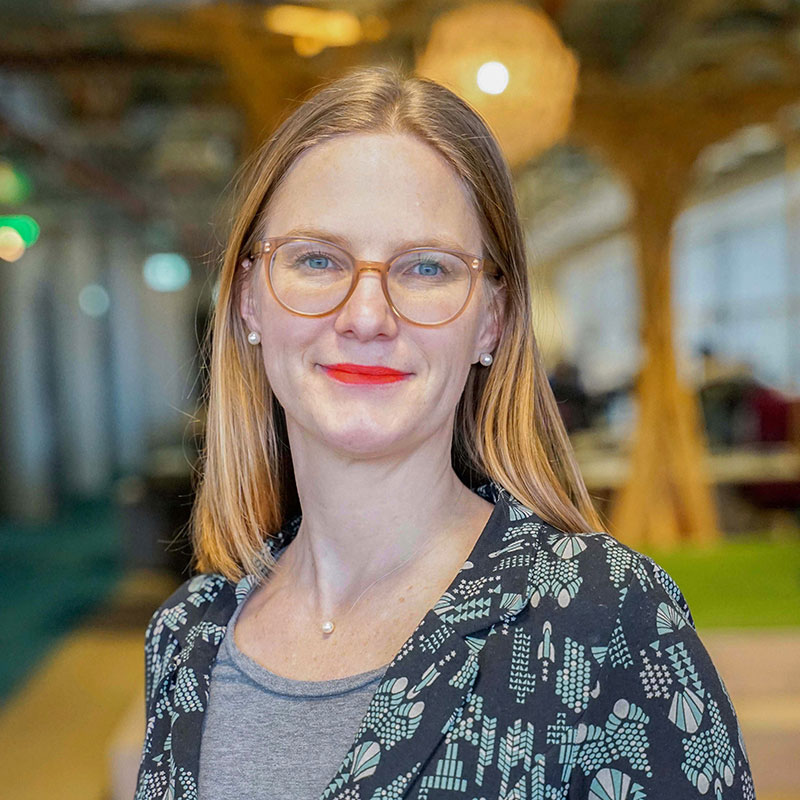
August 24, 2023

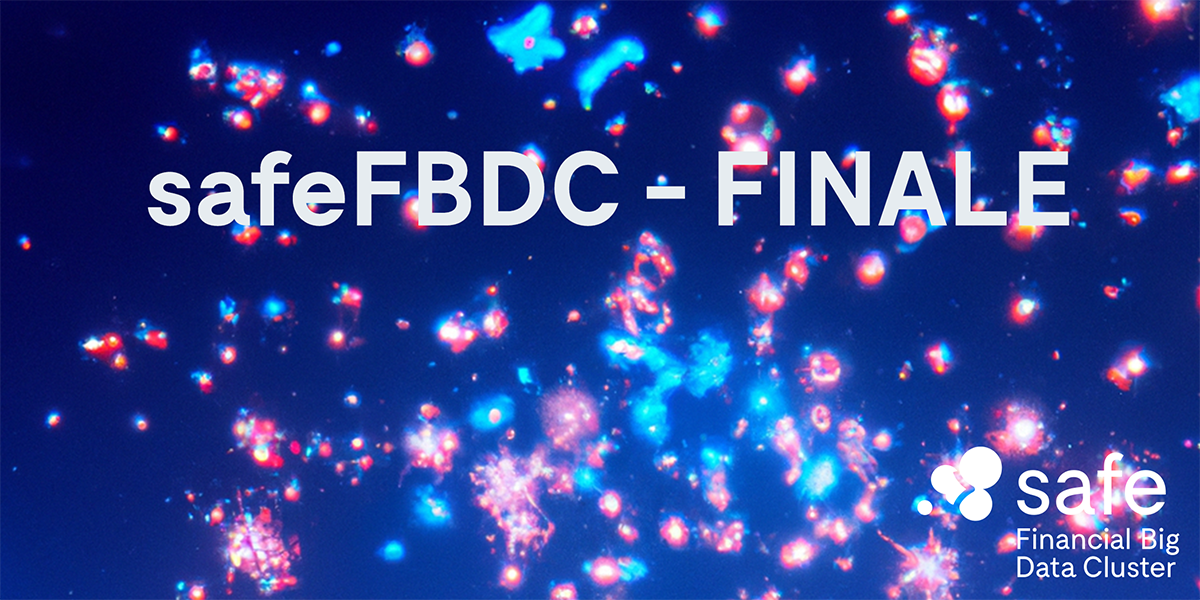
After three years of intensive research, the AI research project safeFBDC presented its central results at TechQuartier in Frankfurt during the "safeFBDC Finale." In front of an audience of experts, participants in the project presented their use cases and highlighted their successful implementation of research questions related to ESG, Anti Money Laundering, and Supply Chain Finance, as well as strategies for sustainability.
The Vision of safeFBDC: AI Research for the Financial Industry
Background: In November 2019, TechQuartier hosted a Round Table where banks, institutions, technology providers, and the state of Hessen jointly developed initial considerations for AI-supported data transfer while preserving data sovereignty. This was followed by a whitepaper, In 2021, the research project was launched within the framework of the AI Innovation Competition of the German Federal Government. The vision was to test a federated ecosystem that provides stakeholders from business, science, and supervision with a secure infrastructure for the exchange and AI-driven analysis of financial data while preserving data sovereignty. Supported by the Federal Ministry of Economic Affairs and Climate Action and a strong consortium of ten partners from business, research, and startups, with the strategic support of the Bundesbank, the state of Hessen, Green and Sustainable Finance Cluster, and a community of associated partners, safeFBDC represents the Gaia-X use case in the financial domain and is part of the official AMLA application for Frankfurt.
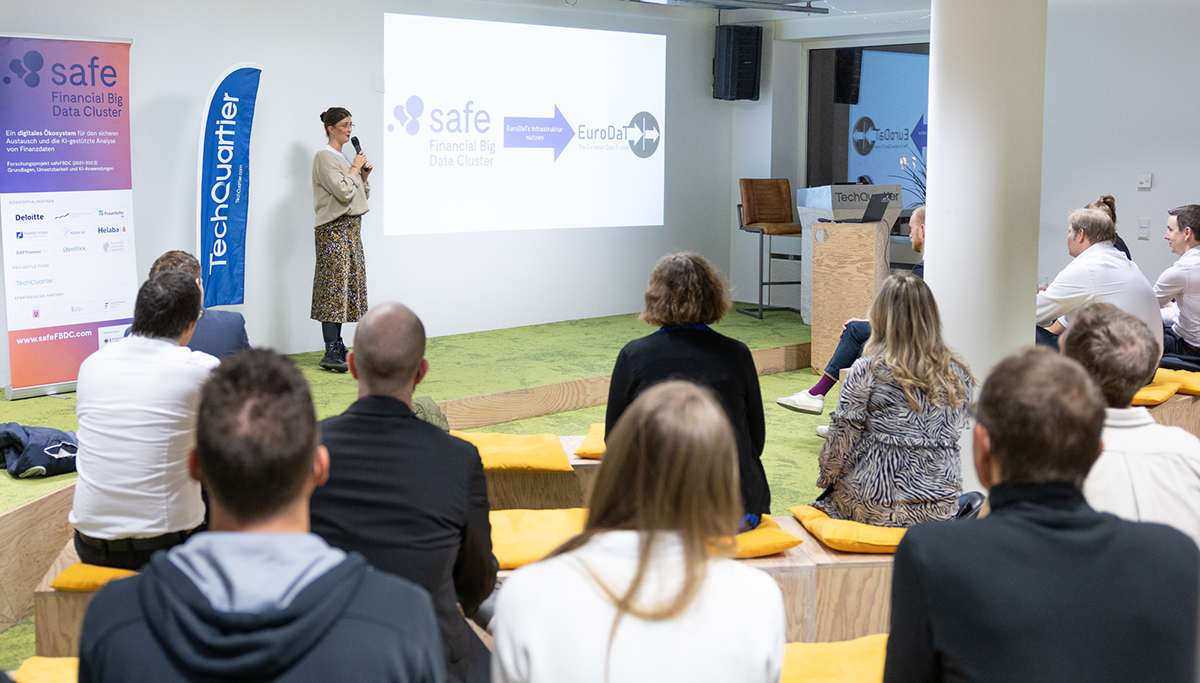
Key Research Findings
After a welcome address by Christoph Pflock from the BMWK and Jan Fischer from Gaia-X, representatives presented use cases and their results and sustainability approaches.
The overarching technological use case was led by SAP Fioneer. The research successfully tested the feasibility of secure data and algorithm exchange between financial actors. The conviction is that future growth in the financial services industry significantly depends on radical collaboration within and outside the industry. The insights gained from this project will be integrated into products, especially in the areas of Anti Financial Crime, ESG solutions, and Embedded Finance.
One team at the Frankfurt School, led by Prof. Ulf Moslener in the Sustainable Finance research area, made a significant contribution by developing innovative tools in the field of machine learning (ML) to improve the quality and availability of Environmental, Social, and Governance (ESG) data. Some of these tools focus on processing and generating raw ESG data, allowing the conversion of unstructured data into structured formats and estimating normally unavailable ESG data with high precision. This significantly contributes to creating a solid foundation for quantitative analysis and more efficient reporting. Another group of tools utilizes ML-based counterfactual analyses and ML-supported forecasts to gain new insights into the impact of ESG factors on the financial performance of companies. These findings promote an improved integration of sustainability aspects into financial decision-making processes, which makes a crucial contribution to the transformation toward a sustainable economy.
A second team from the Frankfurt School, led by Prof. Dr. Sascha Steffen in the research area of monetary policy decisions, analyzed new data sources and the application of AI methods in the context of political decisions. For example, a Twitter/X-based index was developed that measures inflation expectations in real-time, which is a crucial component for monetary policy decisions. In another project, a measure for banks was developed to assess their climate risks from credit portfolios and verified using text-based data from company reports.
In the Stable Supply Chain Finance work package, the Fraunhofer Institute for Material Flow and Logistics IML developed a solution that leverages Industry 4.0 data and technologies to enhance the financial resilience and efficiency of supply chains. Along an exemplary pay-per-use/asset-as-a-service use case, researchers designed blockchain-based applications for automated, IoT-initiated invoice generation and tokenization of resulting claims from deliveries and services. This lays essential groundwork for highly efficient invoicing processes, programmable payments, and "Industrial Embedded Finance." Additionally, the developed solutions enable the establishment of a database for AI-supported financial analyses and risk management applications.
safeAML – a significant step in combating money laundering
In addition to the activities in the safeFBDC research project, the complementary research project EuroDaT for the establishment of a data trustee ran from 2022. This was also presented at the safeFBDC Finale by Dr. Stephan Bredt from the Hessian Ministry of Economic Affairs. Subsequently, Dirk Thomas from Commerzbank presented the safeAML project. Here, the money laundering use case from safeFBDC is institutionalized and actively used on the structure of the EuroDaT data trustee: with the aim of improving digital information exchange between banks in the context of money laundering prevention, the pilot software safeAML will go live. Start-ups, banks, and established consulting firms from the sister projects safeFBDC and EuroDaT have come together in a unique collaboration to lead banks out of the silo-like view of transaction data and establish the detection of cross-bank, complex money laundering patterns sustainably and in compliance with data protection.
Dirk Thomas explains: "In a first step, safeAML 2024 enables the digitization of inquiries between participating pilot banks. At the safeFBDC Finale, we were able to demonstrate the software and the cloud infrastructure in a live demonstration. With safeAML and the data trustee EuroDaT, we want to show that, in addition to applying for the European Money Laundering Authority AMLA, we also have the necessary technical capabilities for combating money laundering at the Frankfurt financial center."
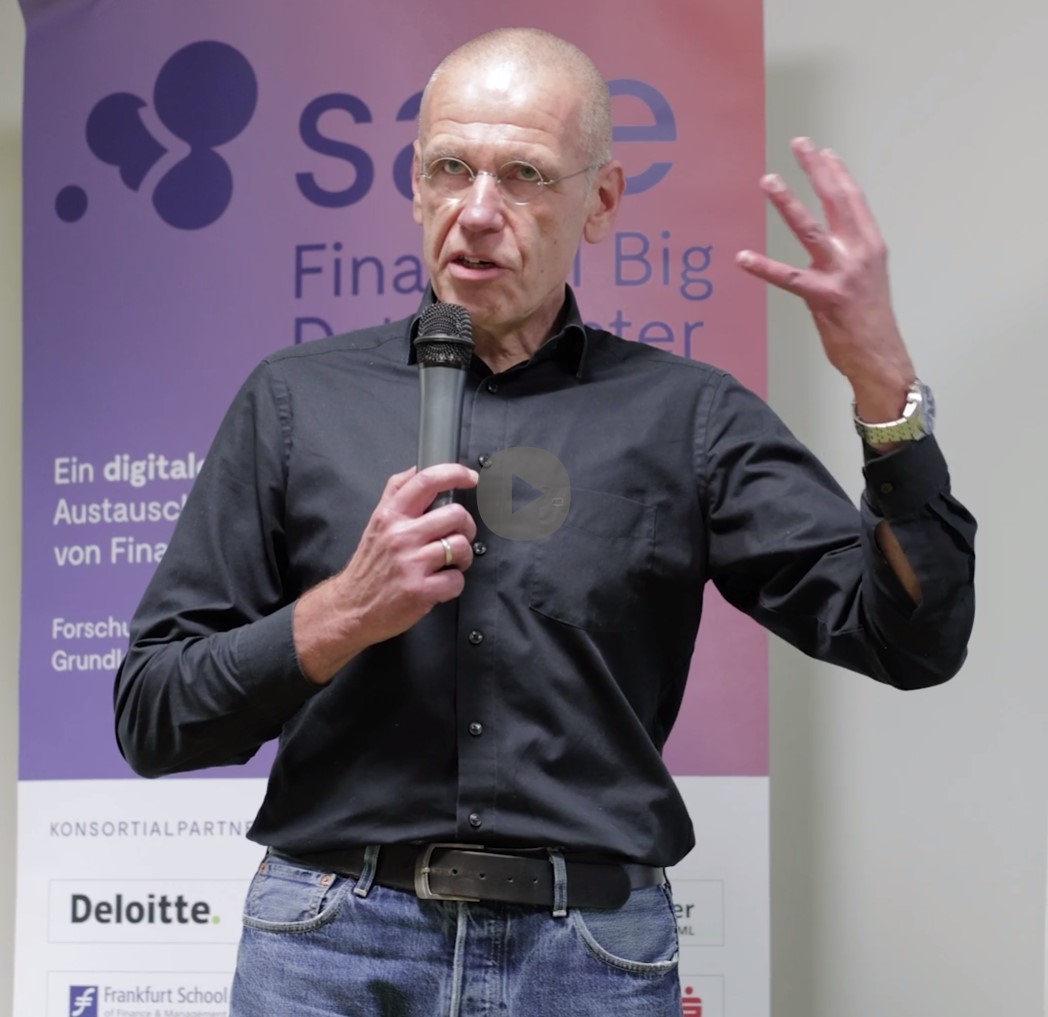
After the technical presentations, guests had time to learn more at the market stands of the use cases and clarify further questions. The work from the safeFBDC research project will be sustained long-term through the data trustee EuroDaT, which also emerged as part of a research project funded by the BMWK.
Dr. Sebastian Schäfer, Managing Director of TechQuartier and co-initiator of the project, summarizes: "Innovation and collaboration have characterized the last three years of the safeFBDC project at TechQuartier. The journey from the beginning until today fills me with pride and joy. The groundbreaking research has not only enriched the financial industry but also strengthened the valuable connection between established entities and emerging startups. We look forward with great anticipation to continuing carrying the fruits of this partnership into the world and to actively and innovatively expand the financial center in the future."
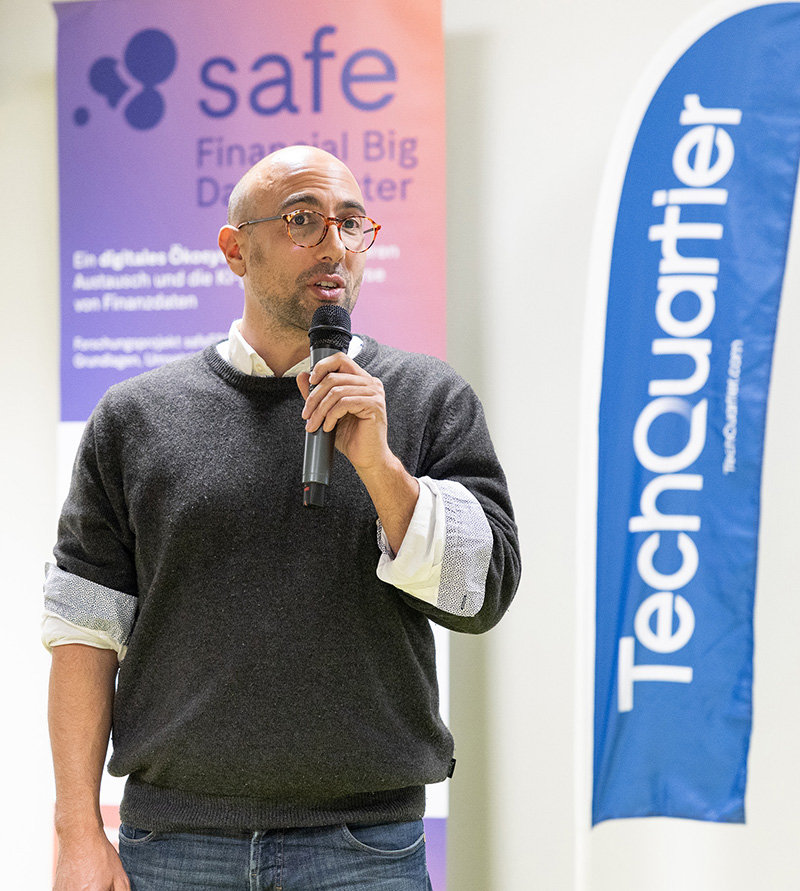
safeFBDC is a research project supported by the BMWK from 2021 to 2023. The consortium consists of ten partners from business and research, exploring a federated ecosystem for the exchange and AI-driven analysis of financial data. Under the leadership of the consortium leader TechQuartier, the companies Deloitte, Deutsche Börse Group, Fraunhofer IML, Helaba, SAP Fioneer, startups Hawk:AI and spotixx, as well as the universities Frankfurt School of Finance and Management and Technische Universität Darmstadt, are involved. Strategic partners are the Deutsche Bundesbank, the state of Hesse, and the Green and Sustainable Finance Cluster.